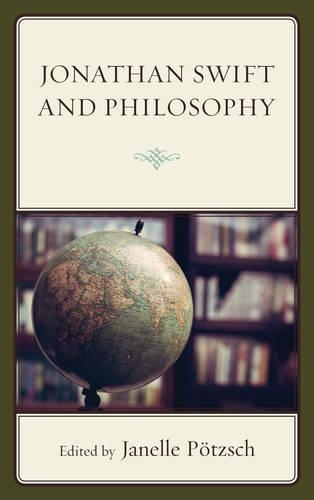
Jonathan Swift and Philosophy
(Hardback)
Publishing Details
Jonathan Swift and Philosophy
By (Author) Janelle Ptzsch
Contributions by Michael Hauskeller
Contributions by Chris A. Kramer
Contributions by Will Desmond
Contributions by Steve van Hagen
Contributions by Janelle Ptzsch
Contributions by William Goodwin
Contributions by Kurt Edward Milberger
Contributions by Dutton B. Kearney
Contributions by Nicolas Michaud
Bloomsbury Publishing PLC
Lexington Books
7th December 2016
United States
Classifications
Professional and Scholarly
Non Fiction
Essays
Philosophical traditions and schools of thought
European history
828.509
Physical Properties
Hardback
272
Width 159mm, Height 237mm, Spine 23mm
531g
Description
Jonathan Swift and Philosophy is the first book to analyse and interpret Swifts writing from a philosophical angle. By placing key texts of Swift in their philosophical and cultural contexts and providing background to their history of ideas, it demonstrates how well informed Swifts criticism of the politics, philosophy, and science of his age actually was. Moreover, it also sets straight preconceptions about Swift as ignorant about the scientific developments of his time. The authors offer insights into, and interpretations of, Swifts political philosophy, ethics, and his philosophy of science and demonstrate how versatile a writer and thinker Swift actually was. This book will be of interest to scholars of philosophy, history of ideas, and 18th century literature and culture.
Reviews
This fascinating collection testifies to Swifts important place in the history of ideas, despite himonce joking that all notions too abstracted / Are like the ravings of a crackt head.These provocative and lucidly-written essays range across the Swift canon, positioning his works in intense dialogue with other key Enlightenment thinkers on issues of ethics, science and politics. Yet, most significantly,Jonathan Swift and Philosophyreveals to us an enduring writer whose works speak profoundly to the debates of today. -- Greg Lynall, University of Liverpool
This volume produces a deeper appreciation of Swift while shedding light on philosophers like Locke and Plato. No mere battle of the books, its reason versus emotion, and cynicism versus satire. Debating it all is no mean task or modest proposal. -- William Irwin, King's College, Pennsylvania
The best authors teach us about ourselves by telling us stories about other people. And Jonathan Swift is one of the best. Through his tales, his wit, and his irony, we learn about our world (science), ourselves (ethics), and our relationships to other people (politics). Each section of this book explores one of these elements of our lives through philosophical analyses of Swifts works. Readers will gain a deeper appreciation for their own world by exploring the rich philosophical landscapes of Swifts. -- Jacob Held, University of Central Arkansas
Author Bio
Janelle Ptzsch works at the philosophy department of Ruhr-Universitt Bochum.
